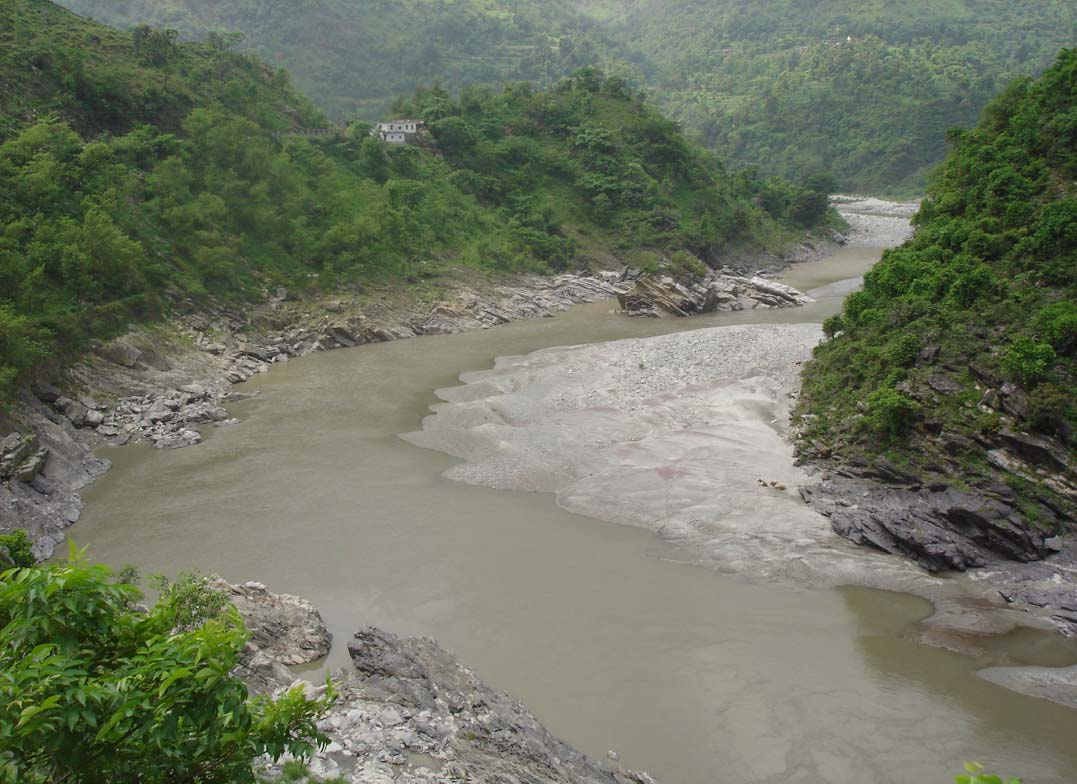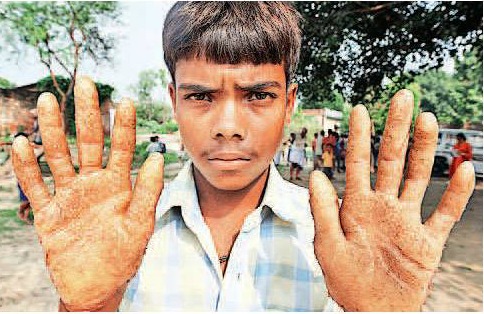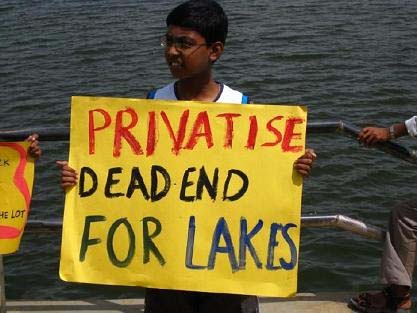Treatment and Purification
Performance audit of water pollution in India – A report by the Comptroller and Auditor General of India
Posted on 03 Jan, 2012 11:44 AM The issue was examined by CAG because various stakeholders working in the field of environment flagged water pollution as the most important environmental issue that concerns us.
The issue was examined by CAG because various stakeholders working in the field of environment flagged water pollution as the most important environmental issue that concerns us.
The audit was conducted through document analysis, collection of responses to questionnaires, physical collection and testing of samples. The results of audit, both at the Central level and the State level, were taken into account for arriving at audit conclusions.
Design, operation and maintenance of sewage treatment plants - A guide by the Karnataka State Pollution Control Board
Posted on 29 Dec, 2011 03:01 PMThis guidebook published by the Karnataka State Pollution Control Board takes the reader through various units, operations and processes in a typical Extended Aeration Biological treatment plant, the Workhorse of the industry.
Investigation and assessment report: Arsenic in drinking water sources and related problems of Ballia district of Uttar Pradesh
Posted on 28 Dec, 2011 11:03 AMFollowing media reports about arsenic contamination in Ballia, and a complaint addressed by the people of Ballia to the Ministry of Rural Development, a National Level Monitor was requested to enquire into the issue of water quality.

Safe water dissemination workshop, PATH, January 19-20, 2012, New Delhi
Posted on 16 Dec, 2011 08:40 AMOrganizers: PATH
Venue: India Habitat Centre, Lodhi Road, New Delhi
January 19th – Silver Oak Room; January 20th – Magnolia Hall
Social Media Partner: India Water Portal
Encephalitis deaths in India - The same story of poverty, neglect, disaster and disease, how long will this continue ?
Posted on 02 Dec, 2011 10:15 AMGuest post by : Aarti Kelkar-Khambete
Water quality hot-spots in rivers of India: Comments by South Asia Network on Dams, Rivers & People, New Delhi
Posted on 30 Nov, 2011 04:54 PMThe Central Water Commission (CWC) has recently prepared a report on water quality scenario of our rivers and has evolved a methodology for identifying hot spots in Indian rivers. The water quality data is based on the average values observed during the last ten years (2001-2011) at 371 monitoring stations of CWC on almost all major, medium and minor rivers in India. Please find below a letter (dated November 5, 2011) from South Asia Network on Dams, Rivers & People, New Delhi to the Chairman, Central Water Commission stating its concerns regarding the report.
Status of groundwater quality in India - Report of the survey conducted in metropolitan areas by the CPCB
Posted on 24 Nov, 2011 05:36 PMThe report recognises that most groundwater quality problems are anthropogenic in origin, caused by a combination of over-exploitation and infiltration of wastes. Inadequate infrastructure and resources mean that waste generated by cities and industrial areas is not properly collected, treated and disposed, thus leading to grondwater contamination.
Karnataka High Court Committee strongly discourages commercial involvement in lake management and rejuvenation
Posted on 23 Nov, 2011 03:57 PMContent and photo courtesy: Environment Support Group
On the contentious policy relating to privatization of lakes, the Justice N K Patil Committee appointed by the Karnataka High Court has recommended that private sector participation solely based on commercial interest is not desirable.

In a significant development, the Committee appointed under the Chairmanship of Justice Mr. N. K. Patil, Judge of the Karnataka High Court and Chairman High Court Legal Services Committee, in response to the Public Interest Litigation by Environment Support Group challenging the privatisation of management and rehabilitation of lakes in Bangalore (WP 817/2008), has strongly recommended that ““private sector participation solely based on consequential commercial interest” is not a desirable model” (Emphasis in original).
Status of water treatment plants in India - A report on their operational status by the Central Pollution Control Board
Posted on 23 Nov, 2011 11:47 AMThis document by the Central Pollution and Control Board (CPCB) describes the findings of a study that evaluated water treatment plants located across the country, for prevailing raw water quality, water treatment technologies, operational practices, chemical consumptio
Demonstration cum dissemination of the feasibility of KAF (Kanchan Arsenic Filter) in Assam - A workshop report - IGSSS and Welthungerhilfe (26th July 2011)
Posted on 21 Nov, 2011 10:26 AMThe workshop aimed at possible replication and acceptability of KAF as a viable, low cost appropriate arsenic mitigation measure in the arsenic contaminated regions of the country.





